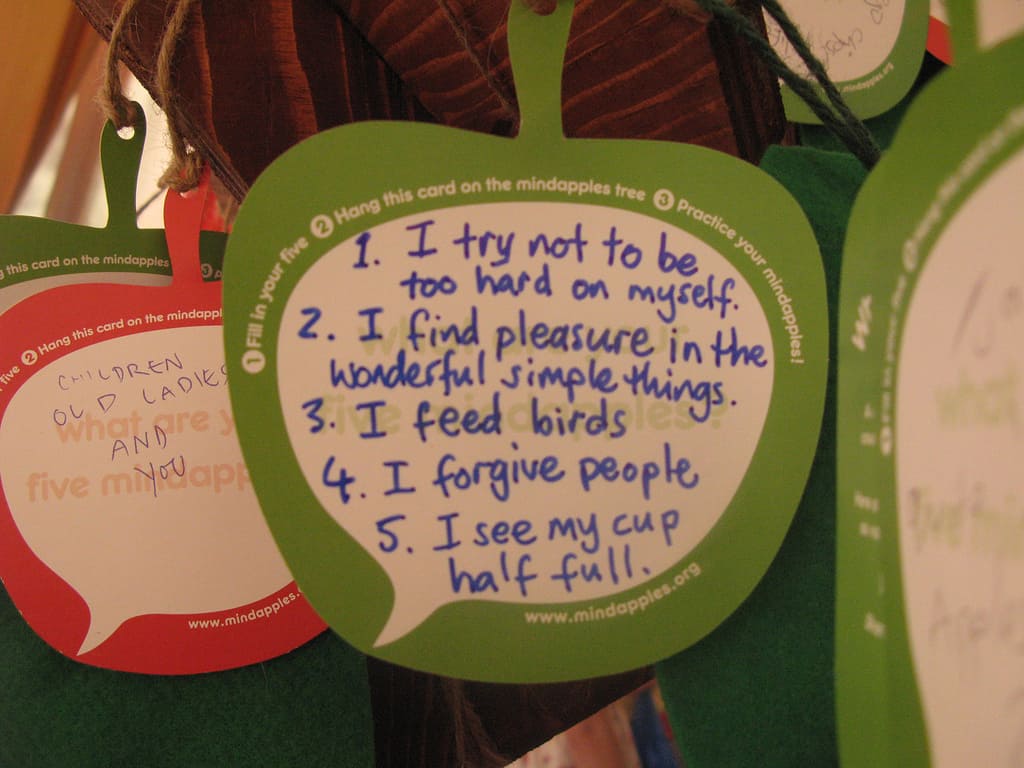
We all know that leisure time makes us feel good, but now scientific evidence shows that taking time out and engaging in activities you enjoy really does lead to both psychological and physical wellbeing.
It’s a well-established fact that physically healthy actions such as eating well and getting enough sleep make us feel better, it is much harder to prove that taking the time to do our ‘mindapples’ is good for us too. Recent research carried out by Pressman and colleagues (2009) has examined how leisure activities affect our wellbeing. They defined these as “pleasurable activities that individuals engage in voluntarily when they are free from demands of work and responsibilities”, but we might call them mindapples.
They proposed that these everyday activities are more than just something we enjoy doing, but also have a beneficial effect for coping and restoration, particularly at times of stress. Taking time out to relax with a cup of tea or spending time in nature can serve as a “breather”, a chance to take a break and distract oneself from demands and concerns that occupy the mind. Leisure activities can also act as “restorers”, helping us cope with stress by replenishing our resources, for example through spending time with loved ones who make us feel cared for and more able to cope. They based this on previous research showing that common categories of social, physical, nature-related, reflective and creative activities were found to be restorative (Jansen & Sadovsky, 2004), categories that we often find in the mindapples suggestions.
Pressman and colleagues investigated the effects by measuring how much time participants were able to spend time doing the activities they enjoyed and compared it to their self-reported psychological wellbeing, as well as blood pressure, stress hormone levels (cortisol) and other physiological factors.
What they found was that individuals that spent more time engaging in enjoyable activities did in fact have greater psychological and physical wellbeing. This included greater experience of positive emotion (positive affect), life satisfaction and engagement, lower depression scores, greater social support, lower blood pressure and cortisol levels, and better perceived physical function.
Another particularly interesting aspect showed that engaging in leisure activities can act as a “stress buffer”. Individuals with greater stress levels (i.e. had recently experienced stressful life events) who took the time to engage in these activities showed lower levels of negative moods and depression and higher positive affect, than individuals who experienced stress but did not spend time on enjoyable activities. This shows that “breathers” or “restorers” promote positive wellbeing and restoration by providing the individual with necessary resources to cope with stress.
So, while it might not be as easy to measure as getting enough sleep or eating vitamin C, it seems you really can take care of yourself by simply remembering to spend time doing the things you enjoy.
Getting 5-a-day for your mind can be good for your mental wellbeing, your physical health, and act as a buffer for coping with stress. And who knows you might even have fun. So, have you had your mindapples?
References:
Jansen, D.A., von Sadovszky, V. (2004) Restorative activities of community-dwelling elders. Promotional Usb Drives West J Nurs Res, 26, 381-399.

